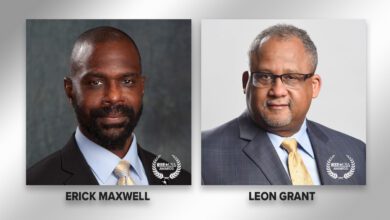
On 8 August, the Federal Communications Commission (FCC) released its annual inquiry seeking public comments assessing the deployment of advanced telecommunications capability to all Americans “in a reasonable and timely fashion.”
The annual query, required under Section 706 of the Telecommunications Act of 1996, as amended, evaluates both fixed and mobile broadband services and their adequacy to originate and receive high-quality voice, data, graphics and video telecommunications.
In the query, the FCC sites Pew Research Center findings that 73 percent of Americans subscribe to fixed broadband services, while 13 percent of Americans across all demographic groups are relying solely on smartphones for home internet access. Given that Americans use both fixed and mobile broadband technologies, the FCC invites comments on whether it should evaluate the deployment of fixed and mobile broadband as separate and distinct ways to achieve advanced telecommunications capability.
With respect to “high speed” broadband, FCC invites comments on its proposal to maintain the current speed benchmark of 25 Mbps download and 3 Mbps upload (25 Mbps/3 Mbps) for fixed broadband, citing a recent Internet Access Services Report finds that 59 percent of residential fixed connections equal or exceed such speed.
The FCC also invites public comment on a proposal to set a speed benchmark for mobile services, asking whether a download speed benchmark higher or lower than 10 Mbps would be appropriate for the purpose of assessing American consumers’ access to advanced telecommunications capability. They also invite comment on how use cases, engineering studies and any other relevant empirical data should inform a mobile speed benchmark, in terms of both the downlink and the uplink speed.
FCC Commissioner Mignon Clyburn issued a statement supporting issuance of the public inquiry, but questioning the speed metrics proposed in the inquiry as being too low. According to Clyburn, the “25/3 Mbps standard we propose would not even allow for a single stream of 1080p video conferencing, much less 4K video conferencing.”
She also warned that the Notice of Inquiry (NOI) “falls into a precarious chicken-and-egg dilemma by seeking comment on whether the Commission should establish a speed benchmark based on the speed tier consumers are subscribing to. This presupposes that consumers are getting the services they want at the prices they want, and are not constrained by network limitations and terms of service.” She added “we are supposed to consider what is “advanced” in the context of what the service can do, not what consumers are buying.”
See the FCC notice of inquiry at: https://transition.fcc.gov/Daily_Releases/Daily_Business/2017/db0808/FCC-17-109A1.pdf
Public Comments are due by 7 September 2017, and can be submitted through the FCC’s Electronic Comment Filing System at: https://www.fcc.gov/ecfs/filings






